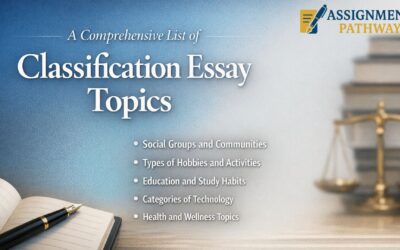How Students Can Write High-Scoring Comparative Essays ?

Writing a comparative essay can be challenging, but with the right approach, you can craft an insightful and well-structured piece that stands out. Whether you’re comparing literary works, historical events, or theories, understanding the nuances of comparative analysis is crucial. This guide will walk you through the essential steps to enhance your comparative essay writing skills, ensuring you achieve top marks.
1. Understand the Assignment Prompt
Before diving into writing, it’s imperative to fully comprehend the assignment’s requirements. Carefully read the prompt to identify:
- The subjects to compare: Are you analysing two novels, historical events, or scientific theories?
- The purpose of the comparison: Are you highlighting similarities, differences, or both?
- Specific criteria or themes: Are there particular aspects you need to focus on, such as themes, characters, or outcomes?
A clear understanding of these elements will provide a solid foundation for your essay.
2. Develop a Strong Thesis Statement
Your thesis is the backbone of your comparative essay. It should clearly state:
- The subjects being compared.
- The main points of comparison.
- The significance of the comparison.
For instance, if comparing two novels, your thesis might be: “While both novels explore themes of identity and belonging, ‘Novel A’ portrays these themes through a lens of personal struggle, whereas ‘Novel B’ emphasizes societal influences.” A well-crafted thesis guides your analysis and keeps your essay focused.
3. Choose an Appropriate Organizational Structure
- Point-by-Point Method: Discuss each point of comparison separately for both subjects. This method allows for a detailed analysis of each aspect.
- Block Method: Discuss all aspects of one subject first, followed by all aspects of the other. This approach can be effective when the subjects are complex and require in-depth discussion.
Select the method that best suits your subjects and the depth of analysis required.
4. Conduct Thorough Research
Gather relevant information and evidence to support your comparisons. This may include:
- Primary sources: The subjects themselves, such as the full text of novels or original documents.
- Secondary sources: Scholarly articles, critiques, or analyses that provide additional insights.
Ensure your sources are credible and directly related to your subjects. Proper citation of these sources is essential to avoid plagiarism and to strengthen your arguments.
5. Analyse, Don’t Just Describe
A common mistake in comparative essays is merely describing the subjects without analysing them. Aim to:
- Identify similarities and differences: Highlight how the subjects are alike or differ in significant ways.
- Analyse the significance: Discuss why these similarities and differences matter in the context of your thesis.
- Provide evidence: Use specific examples from your sources to support your analysis.
This critical approach demonstrates a deeper understanding of the subjects and their interrelationships.
6. Use Comparative Language Effectively
Utilize transitional phrases to clearly indicate comparisons and contrasts, such as:
- For similarities: The two theories approach the concept in a similar manner.
- For differences: However, on the other hand, in contrast, whereas.
These phrases help guide the reader through your analysis and clarify the relationships between the subjects.
7. Write Clear and Cohesive Paragraphs
Each paragraph should focus on a specific point of comparison and include:
- A topic sentence: Clarifies the paragraph’s focus for the reader.
- Evidence and analysis: Provides examples and explains their relevance.
- A concluding sentence: Summarizes the point and links it back to the thesis.
Create logical connections between paragraphs to guide your reader through your argument
8. Revise and Edit
- Check for clarity and coherence: Ensure each paragraph supports your thesis and that your arguments are logically structured.
- Proofread for grammar and spelling errors: Correct any mistakes to enhance the professionalism of your essay.
- Seek feedback: Consider having peers or instructors review your essay for additional perspectives.
9. Seek Additional Support
If you find yourself struggling with any aspect of your comparative essay, don’t hesitate to seek assistance. Assignment Help London offers expert guidance to help you refine your writing skills and achieve academic success. Whether you need help with structuring your essay, developing your thesis, or improving your writing style, professional support can make a significant difference.
By following these steps and dedicating time to thoughtful analysis and clear writing, you can produce a high-scoring comparative essay that showcases your critical thinking and writing abilities. Remember, practice and persistence are key to mastering the art of comparative writing.






